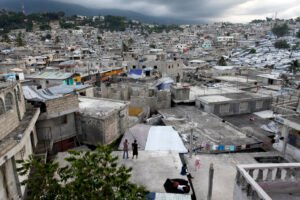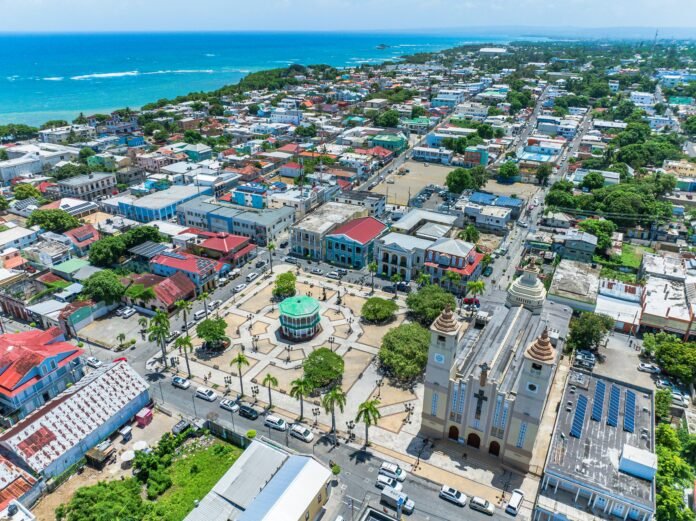Haiti’s health insurance landscape is characterized by stark contrasts between its minimal public health coverage and a growing but limited private insurance market. Understanding the differences and similarities between public and private health insurance in Haiti sheds light on the broader challenges facing the country’s healthcare system.
Differences
The most prominent difference between public and private health insurance in Haiti lies in their reach and quality of service. Public health insurance—primarily through OFATMA (Office d’Assurance Accidents du Travail, Maladie et Maternité) and ONA (Office National d’Assurance Vieillesse)—covers less than 5% of the population combined. OFATMA primarily serves formal sector workers with basic coverage for work-related accidents, illness, and maternity through a limited hospital network. ONA, meanwhile, targets the elderly and disabled but does not provide comprehensive medical coverage.
In contrast, private health insurance caters to wealthier Haitians, expats, and international travelers. Local companies like AIC (Alternative Insurance Company) provide group health plans and micro-insurance options for low-income groups, while international insurers such as AXA, Cigna Global, and Geoblue offer comprehensive coverage that includes outpatient care, hospitalization, emergency evacuation, and telemedicine. These international plans are typically more flexible and of higher quality but are prohibitively expensive for most Haitians.
Service accessibility also differs significantly. Public insurance holders often face long wait times, frequent drug shortages, and low-quality care, especially in rural areas. Conversely, private insurance offers access to a broader range of facilities and specialists, shorter wait times, and better overall service quality—although still not on par with international standards.
Similarities
Despite their differences, both public and private health insurance systems in Haiti face structural limitations. Both suffer from small risk pools and fragmented delivery. Even in the private sector, local insurers like AIC struggle with scale and consistency, and the system as a whole lacks robust regulation and infrastructure support.
Another similarity is the lack of universal accessibility. Whether public or private, health insurance in Haiti remains out of reach for the vast majority of the population due to poverty, limited awareness, and insufficient governmental support. Both sectors also rely on external funding and partnerships, particularly in international private insurance and donor-supported public health initiatives.
Top Public Health Insurance Options in Haiti
Haiti’s public health insurance system is extremely limited and underdeveloped. As of now, there are only two recognized public health insurance entities in operation: OFATMA and ONA. These programs serve very narrow segments of the population, and there is no universal health coverage in place. Due to the absence of a robust public system, the government has proposed plans for a national health fund, but these have yet to be implemented. Below is an overview of the only two functioning public health insurance providers in Haiti.
1. OFATMA (Office d’Assurance Accidents du Travail, Maladie et Maternité)(Official website: https://www.ofatma.gouv.ht/ )
- Cost: Contributions are usually employer-based and deducted from formal sector wages. The exact premium rate varies depending on employment contracts but is subsidized to some extent by the government. There is no flat-rate premium available to the informal sector or unemployed population.
- Available Services / Coverage Features: OFATMA provides health insurance for workplace accidents, maternity, and general illness for workers in the formal sector. It maintains a network of 44 healthcare facilities (public and private) across Haiti to serve its beneficiaries.
- Open for All or Limited: Limited. It is open only to workers in the formal sector and does not provide coverage for informal workers, unemployed citizens, or the rural population.
- Core Financial Features: Funded by payroll contributions from employers and employees in formal sectors. It uses these funds to reimburse contracted medical providers for approved services.
- Consumer Satisfaction Score: Very low. Access to services is inconsistent, and complaints about poor infrastructure, lack of medical equipment, and long wait times are common. Rural beneficiaries often have difficulty accessing care due to distance and facility shortages.
2. ONA (Office National d’Assurance Vieillesse)
- Cost: Contributions come from mandatory payroll deductions for eligible workers, mainly aimed at social security-style benefits rather than direct health coverage. Like OFATMA, ONA is not accessible to the informal sector or unemployed individuals.
- Available Services / Coverage Features: Although not a health insurance program in the traditional sense, ONA provides some medical benefits for the elderly and persons with disabilities as part of its broader social security function. These may include partial coverage of hospital visits, medications, or assistance during long-term care.
- Open for All or Limited: Extremely limited. Only retirees and qualified disabled individuals with prior formal sector employment are eligible.
- Core Financial Features: Primarily funded through long-term contributions from workers and employers. It operates more like a pension system with supplemental health-related benefits.
- Consumer Satisfaction Score: Also low. Many retirees report difficulty accessing consistent care, and benefit disbursements are often delayed. Services are considered insufficient for real medical needs, especially for chronic illness and specialized care.
Top Private Health Insurance Providers in Haiti
Haiti’s private health insurance sector is relatively small but plays a critical role in filling the gap left by the country’s underdeveloped public healthcare system. The available private insurers primarily serve urban populations, the expatriate community, and wealthier locals who can afford coverage. The options are typically expensive by local standards and tend to operate through partnerships with international providers or local private hospitals. Below are the most notable private health insurance companies currently operating in Haiti.
1. Sogebank Assurance Santé (via Sogebank Group)(Official website: https://www.sogebank.com/)
- Cost: Premiums range from $600 to $2,000+ per year, depending on age, family size, and coverage level. Payments are made in USD.
- Available Services / Coverage Features: Offers hospitalization, outpatient care, specialist consultations, laboratory tests, prescription drugs, and surgical procedures through affiliated private hospitals.
- Open for All or Limited: Open for all, though typically marketed to professionals, corporate clients, and expatriates.
- Core Financial Features: Fully private funding through member premiums. Claims are reimbursed or settled directly with partner facilities. Offers tiered plans with co-payment structures.
- Consumer Satisfaction Score: High among urban users. Clients report good service quality, quick claims processing, and a strong provider network. However, it remains inaccessible to low-income Haitians.
2. UNIASSUR Haiti
- Cost: Annual premiums start around $800 for individuals, with family plans costing more. Premiums vary with the age and health condition of the applicant.
- Available Services / Coverage Features: Coverage includes emergency care, diagnostic imaging, chronic disease treatment, and maternity services. Offers access to both national and regional hospitals.
- Open for All or Limited: Open for all, but pricing restricts access primarily to middle and upper-income groups.
- Core Financial Features: Operates on private premiums with optional top-up plans. Offers flexible deductibles and co-payment percentages based on the chosen plan.
- Consumer Satisfaction Score: Moderate to High. While praised for its comprehensive plans, users note delays in reimbursements and some limitations in rural service access.
3. HAITI MED Insurance
- Cost: Entry-level plans begin at approximately $500 annually, while premium plans can exceed $1,500. Group discounts available.
- Available Services / Coverage Features: Includes physician visits, prescription coverage, diagnostics, and emergency transportation. Offers direct billing with major private clinics in Port-au-Prince and Cap-Haïtien.
- Open for All or Limited: Open for all, often used by NGOs and aid workers as well as local professionals.
- Core Financial Features: Funded by individual or employer-sponsored premiums. Some plans include deductible options and global emergency coverage.
- Consumer Satisfaction Score: High. Clients appreciate responsive customer service and wide clinic access. Limited criticism revolves around high premium costs.
4. Caribbean American Life Insurance Company (CALICO)
- Cost: Premiums typically start from $700 per year and can vary depending on medical history and coverage scope.
- Available Services / Coverage Features: Offers personal health insurance including surgical procedures, dental, and vision plans. Also provides life and accident insurance bundles.
- Open for All or Limited: Open for all, but primarily caters to the expatriate and professional demographic.
- Core Financial Features: Premium-funded with options for family and corporate policies. Offers some integration with international medical evacuation services.
- Consumer Satisfaction Score: Moderate. Customers report decent international care links but point to occasional communication issues and paperwork delays.
5. La Mondiale Haitienne (partnership with international insurers)
- Cost: Premiums vary widely from $1,000 to over $3,000 per year, depending on age, coverage level, and international options.
- Available Services / Coverage Features: Tailored for high-net-worth individuals, covering local and international care, second-opinion services, specialist access, and wellness benefits.
- Open for All or Limited: Limited. Intended for upper-class individuals, diplomats, and expatriates.
- Core Financial Features: Privately financed with strong international backing. Offers premium plans with concierge-style health services and global emergency support.
- Consumer Satisfaction Score: Very High. Known for luxury service level, quick claim approval, and broad global coverage. Accessibility, however, is a major barrier for average Haitians.
READ MORE: Private and public health insurance of Bahamas (Make informed choices)


